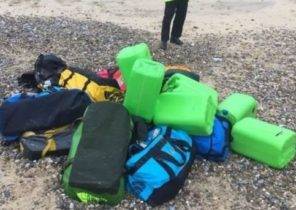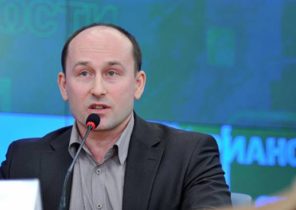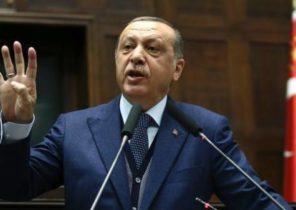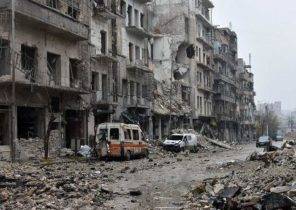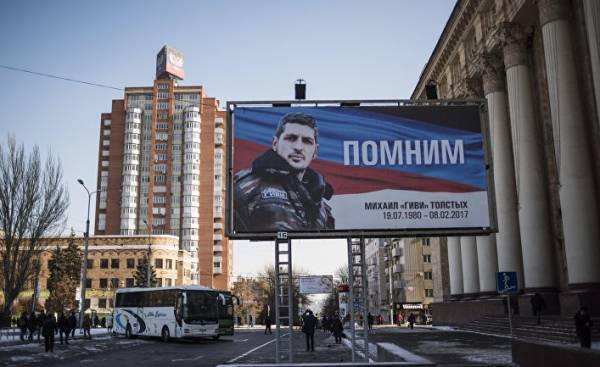
Donetsk — If not for the artillery rumble on the outskirts, in the light of day Donetsk could produce the impression of a city returning to normal life almost three years after the start of the war between the separatists, supported by Russia, and the Central government in Kiev. By night, its streets deserted: curfew still in effect from eleven at night until five in the morning. However, the calm may be temporary. The sources, involved in the decision-making in the self-proclaimed Donetsk people’s Republic (DPR) say that the area is cut off in fact from the Ukrainian Donetsk region, is on the brink of new shocks. When, how, and with what result these shocks are different, in their opinion, first and foremost, from the strategic plan, which will choose Moscow.
Amid the annexation of Crimea, Pro-Russian separatists held on may 11, 2014 own referendum, asking the population of Luhansk and Donetsk regions of Ukraine, does it “act on the state independence of (of the) people’s republics”. The vote is recognized as illegal by Ukraine and the international community, serves as a supporting base for the rebels, who currently control a third of both industrial areas (renamed by them in the Donetsk and Lugansk people’s Republic).
Socio-economic ties between Donetsk and Lugansk and the rest of the country (gas, electricity, transport, freedom of movement) were broken in 2014 because of the war, which is then finally divided the country into two zones. Seperatist receive supplies and military aid through a common border with Russia. The agreement, signed in February 2015 in Minsk “Norman Quartet” (Ukraine, Russia, France, Germany with the participation of the OSCE), created the temporary illusion that the conflict can be frozen and to control its level of toxicity for the weakened organism of Ukraine. Now the situation has changed. The Minsk agreement (aimed reintregration “rebellious” areas in the Ukraine) all have less in common with reality “on the ground”, where everything goes faster integration with Russia.
The recent recognition of Moscow documents (including passports) issued by the separatist authorities encouraged local “activists”, who are waiting for the green light from the Kremlin to carry out plans which they have never refused to fully capture the Donetsk and Lugansk regions, citing the fact that “referendum” was held throughout the regions. In addition, they want to hold a “reunion” on “the best conditions”, that is, when the “maximum attenuation” of Ukraine, “the maximum non-interference” of those who would support it (Europe and USA) and “maximum strengthening” of Russia and their own government in the so-called republics. “All the time. We don’t want Russia recognized us in its current borders, because at the moment is only part of our territory. When we grow up administrativnih to the borders of Donetsk region, we will more actively to aspire to”, — says Alexander Timofeev, nicknamed “Tashkent” (received for what was there at the military Academy in the Soviet times). Timofeev is the Minister of revenues and duties DND.
The rebels are not only in a military way. Taught by Russian “advisors”, they are trying to lure the population with “the other side of the barricades”, from the territories which they call “government-controlled”, by various measures, for example, promising young Ukrainians privileges at receipt in higher education institutions and diplomas recognised in Russia. “What the Crimea (which was annexed by Russia in 2014) achieved in a few weeks, we will work for a long time”, — assured the people close to the decision-making process.
The blockade, organised loyal to Kiev activists and veterans, came extremely the way to the rebels, because accelerates the integration of Eastern regions of Ukraine with Russia that recognizes even the Ukrainian President Petro Poroshenko. Most of the citizens and not only in the East of the country, perceives the current leader as a weak figure, submits to the will of those who fought in the ATO (“anti-terrorist operation” in the official terminology of Kiev).
In contrast to what it was a year ago, the supermarkets of Donetsk is now inundated with diverse and high quality products, among which we can find even a leg of ham ready to be sliced. A wide range of sausage products, dairy products, jam, dozens of varieties of coffee and tea, vegetable oil of all kinds, detergents and cosmetics. For the most part, these goods imported from Russia, though often they are produced under license of foreign companies on its territory. On the shelves you can see a wide range of Ukrainian cheeses, which or was left of the supplies before the blockade, or testify to the fact that still there are channels of supply between areas. There is a large selection of meat and dairy and prepared foods, produced under the label, in Donetsk people’s Republic. The only currency in which all operations are conducted, has long been the ruble.
Some of the products available on the market, by subsidies and sold at reduced prices (local milk, bread, Essentials), but still a family to feed — this is a real dilemma for local residents, many of whom are unemployed or get a measly 10 thousand rubles (approx. € 180) is, for example, the salary of a waiter or 2600 rubles pension.
With the beginning of the siege the rebels took control of the major local companies, owned by oligarchs like Rinat Akhmetov and Sergei Taruta. “The introduction of external management companies does not imply nationalization, and aims to stabilize their work to avoid social unrest and to ensure the payment of wages”, says Timofeev, according to which measure is related to forty thousand men and about forty companies of Donetsk. Currently, he argues, produced a scheme of industrial products through Russia. “We received four contracts from China for the supply of the metal, says Timofeev. — Will soon be required in Syria to the metal to deliver, and I am confident that this country will take our products, even if the certificate of origin will have international recognition.” Minister DND even invites you to invest in the region for schemes that involve the establishment of companies in offshore zones. Timofeev-Tashkent even considered possible deliveries of goods from Ukraine, allegedly sent to Europe, and is studying the possibility of building a trade port on the 22-mile stretch of coast of the Azov sea controlled by the rebels.
Opaque economic relations annexed the Crimea with the world are an experimental reference for team of experts (with the Russians), which is trying to develop so-called Republic so that not to trigger new sanctions against Russia. Timofeev thinks not only about exports, but about the self, which has launched a project to restore the greenhouse farming area of 5 hectares in the town of Zugres, where almost ripe tomatoes.
Between Frank Sinatra, Givi and Lenin
Donetsk authorities have made every effort to maintain cleanliness in the city centre, as if war does not exist. To create a cultural atmosphere of the Russian and Western artists, funded by the Russian companies come from the Russian territory, risking that they will ban entry to Ukraine. Is still open, “Donbass Palace”, a luxurious hotel owned by Akhmetov and the separatists controlled the first of March. The institution is led by new executives, along with the old that adopted the new mode. Room early which cost 340 euros, now worth 6500 roubles (less than 110 Euro), says the girl at the front check under the voice sounds of Frank Sinatra (Frank Sinatra), sounding in a convenient and deserted lobby. On the streets of Donetsk hanging giant posters with a portrait of Mikhail Tolstoy, nicknamed Givi, commander of the battalion “Somalia”, who died February 8, and in the center of the city going to restore the track to the monument of Lenin, despite the fact that many do not consider this a primary task in the city, whole areas which are destroyed by the war.

